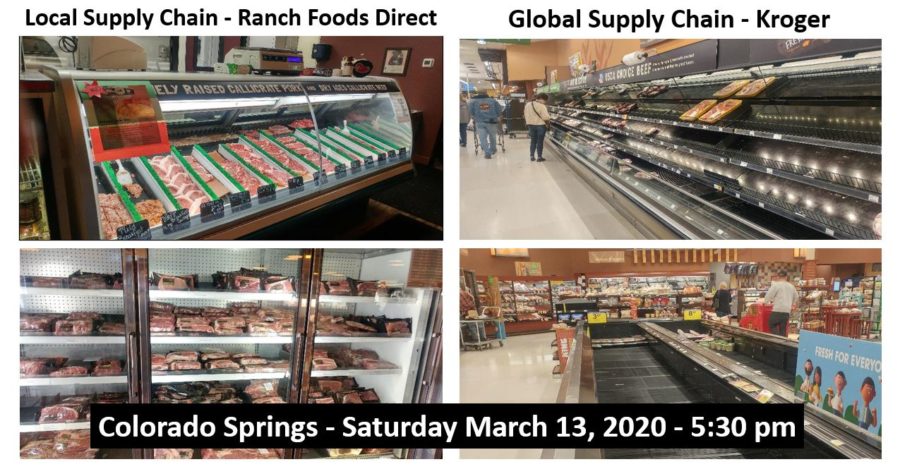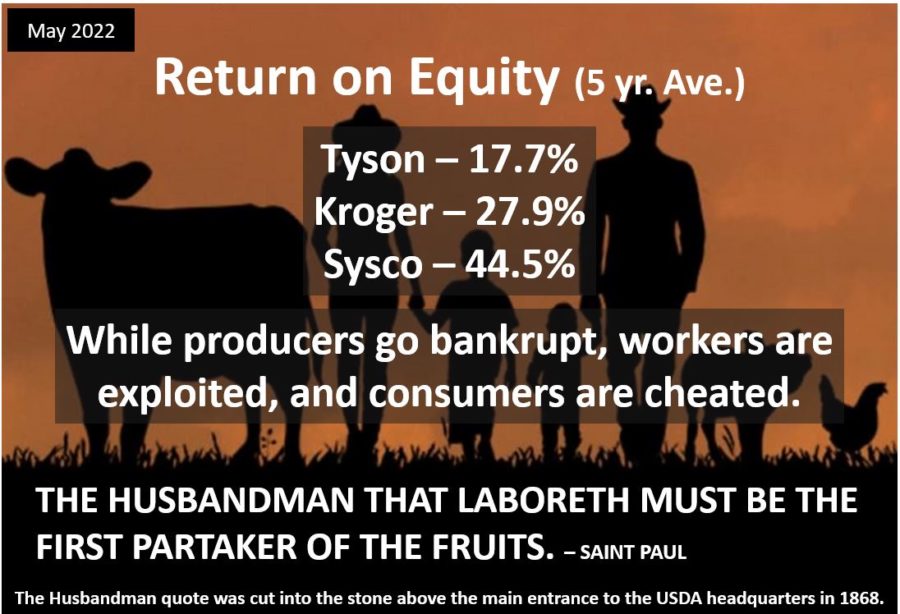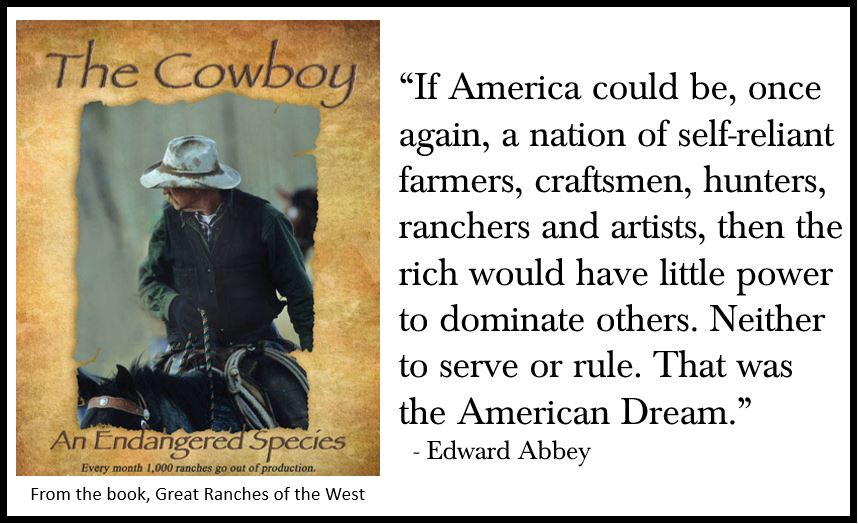Nothing will change as long as big companies control the market
By Mike Callicrate
Post Pandemic – Nothing has Changed – Nearly every person in America has seen the empty grocery shelves, the sick and dying meat plant workers, the massive piles of composted and incinerated pigs and chickens, and the price gouging – we’re still suffering the price gouging. Nearly every person in America has witnessed how fragile and broken our food system is, so why has so little, if anything, changed?

Historian Barbara Tuchman asks the question in her 1984 book, The March of Folly, why do governments pursue policies contrary to their own interests when feasible alternatives are clearly available? “Why did the Trojan rulers drag the suspicious-looking wooden horse inside their walls despite every reason to suspect a Greek trick?”
And today, as we consider a new farm bill, we should ask, why have we allowed a handful of multinational corporations, including JBS, a crime family from Brazil, Smithfield, a state-owned entity from China, and Cargill and Tyson, both powerful global predators with long criminal records, to dominate our food system? We clearly have better alternatives for feeding ourselves. Why are we a net food importer when we can feed ourselves a healthy diet from a more resilient, diverse, decentralized, and far safer domestic food system? Why is Senator Booker from New Jersey nearly alone in speaking out against the grave injustices, and our members of Congress from the State of Colorado, where JBS and Cargill have major operations, are silent?
Today, this handful of highly subsidized and favored multinational companies are in full control of our food system including the main agency mandated to regulate them, the United States Department of Agriculture. The non-subsidized ideal farms and ranches we desperately need for a better world are shut out of the national market. Leading the way towards a safer, more resilient, and most recently, regenerative form of agriculture, the very best producers, in this fool’s game, are forced to sell below-cost-of-production in a predatory market. Only their stolen identities make it to the end consumer.
People looking to support better agricultural practices continue to be deceived with various bait and switch schemes. These false claims and misleading labels hide the very worst of production practices, from animal cruelty, worker abuse, to environmental degradation, driving these ideal operators off the shelves, out of the kitchens, and out of business. Every profitable niche created by our very best producers has been stolen by the industrial pretenders. You can’t change the food world with your fork if you can’t tell what’s on your plate. This is food fraud.

While farmers and ranchers do most of the work, take nearly all the risk, and invest over 80% of the capital required to produce food, they’re treated as just another cost to be reduced on the food cartel’s income statement. We need fewer MBAs and more Master Butchers.
In support of best practices in food production, new projects, using the latest in technology, are working on new platforms for connecting producers to buyers, identifying high production standards, food origin, animal welfare, better environmental practices, etc. Understanding the current landscape is critical – the reason most every other attempt to build directories and food guides has failed. If the power buyers, including the biggest institutional buyers, big retail, food management, and food service companies remain in control, nothing will change. Ideal producers have no way of surviving any pathway to market that is controlled by the greedy too-big-to-regulate and too-big-to-fail food companies.

After decades of market concentration, and many years of niche brand companies either selling out, or going bankrupt, isn’t it time we did something different? The fact is, agriculture and our food system have gradually been transformed into an industrial mining operation through anti-competitive practices and abusive market power, consuming valuable resources, depleting our soils, and starving our farms and ranches of the income necessary to remain on the land and be the stewards and husbandmen we need. For the last couple of decades, as the most ideal producers have gone out of business, we’ve been told by companies like Whole Foods to be patient and accept the idea of incremental change, which they say will eventually lead to a more just, humane, and sustainable food system. As with the labels on their food, we’ve been misled. We’ve lost too much to settle for a few percentage points of change.
To suggest this extremely profitable, near monopoly food cartel can now be part of a sustainable food system, after decades of strip-mining rural America and the globe, leaving degraded land, pollution, hungry people, and broken communities behind, is nonsense. It’s like expecting a wolf to go vegan. Why would the growth obsessed shareholders and executives of the world’s largest agriculture and food companies support any change, relinquishing the only things they care about – power and profits?
I’m convinced, only a decentralized and fully transparent food system, separate and apart from the existing corporate controlled industrial model, can heal the Earth, ensure all may eat, and the husbandman will always be the first partaker of the fruit.
So why does something so dysfunctional survive? Because it’s what we support.













Right On! Gilles
Amen Mike!
If improvements aren’t made before the next “event” people will definitely be going hungry if not worse.
Total agreement
I finally got a chance to meet you Mike in person at the Food Not Feed Summit held 2 weeks back in DC. Your talks cut right through the heart of it all and I appreciate all that you do. Rock on brother 🙂
Thank you Mike for consistantly keeping a spotlight on the battle to restore an American System family farming structure, culture and community creativity. Our founding fathers fought a revolution to bust up the control of monopolies and replace serfdom with independent families farms and businesses.. Monopolies suck the joy of human creativity out of the communities. We will change that for the upcoming generations.